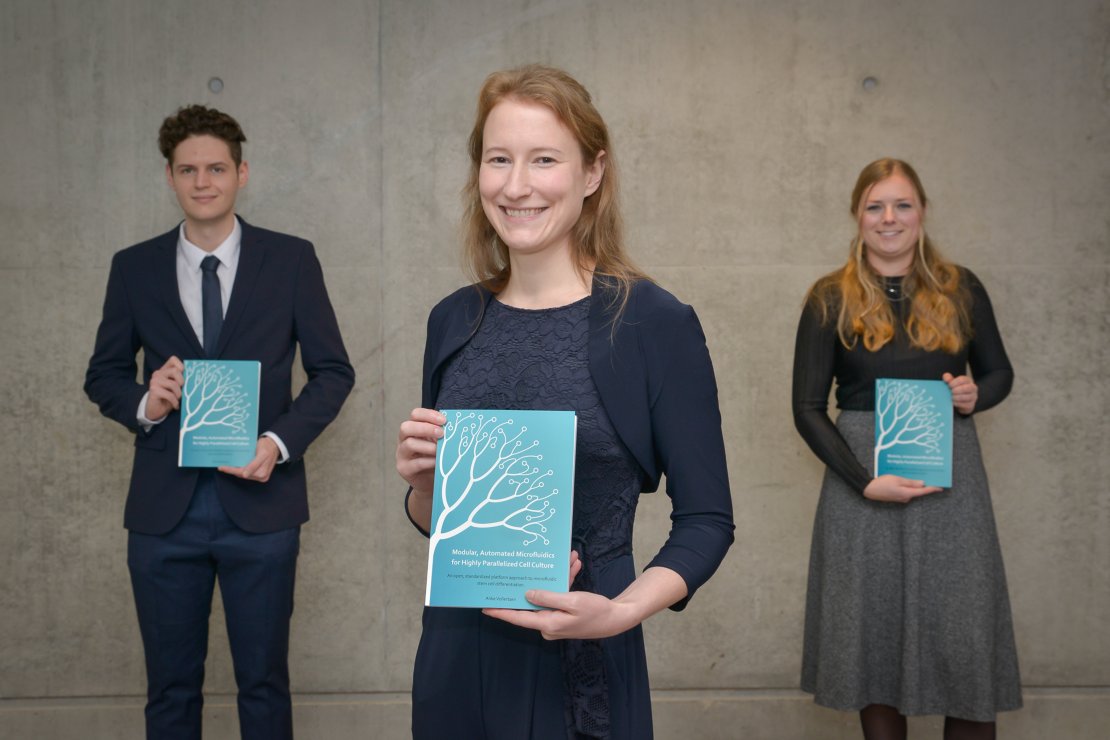At October 23rd 2020 Anke Vollertsen succesfully, cum laude, defended her thesis
Modular, Automated Microfluidics for Highly Parallelized Cell Culture
An open, standardized platform approach to microfluidic stem cell differentiation.
https://doi.org/10.3990/1.9789036550734

See also her recent article in Microsystem & Nanoengineering:
Modular operation of microfluidic chips for highly parallelized cell culture and liquid dosing via a fluidic circuit board
Microfluidic systems enable automated and highly parallelized cell culture with low volumes and defined liquid dosing. To achieve this, systems typically integrate all functions into a single, monolithic device as a “one size fits all” solution. However, this approach limits the end users’ (re)design flexibility and complicates the addition of new functions to the system. To address this challenge, we propose and demonstrate a modular and standardized plug-and-play fluidic circuit board (FCB) for operating microfluidic building blocks (MFBBs), whereby both the FCB and the MFBBs contain integrated valves. A single FCB can parallelize up to three MFBBs of the same design or operate MFBBs with entirely different architectures. The operation of the MFBBs through the FCB is fully automated and does not incur the cost of an extra external footprint. We use this modular platform to control three microfluidic large-scale integration (mLSI) MFBBs, each of which features 64 microchambers suitable for cell culturing with high spatiotemporal control. We show as a proof of principle that we can culture human umbilical vein endothelial cells (HUVECs) for multiple days in the chambers of this MFBB. Moreover, we also use the same FCB to control an MFBB for liquid dosing with a high dynamic range. Our results demonstrate that MFBBs with different designs can be controlled and combined on a single FCB. Our novel modular approach to operating an automated microfluidic system for parallelized cell culture will enable greater experimental flexibility and facilitate the cooperation of different chips from different labs.





